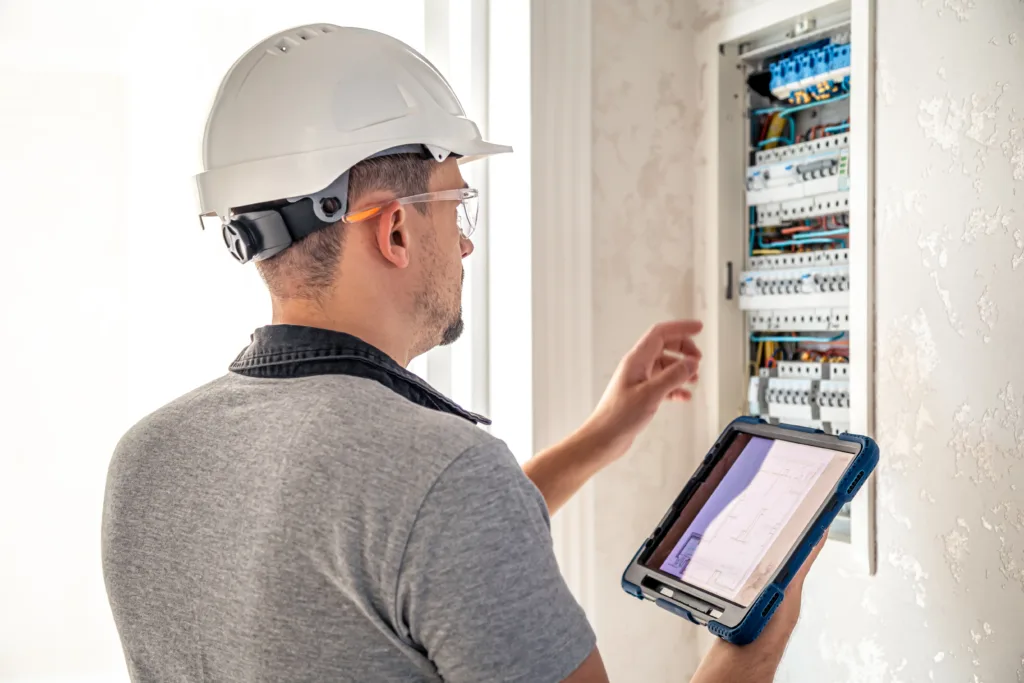
In the age of YouTube tutorials and DIY home improvement shows, tackling household projects on your own has never been more accessible or appealing. The sense of accomplishment and potential cost savings are significant motivators for homeowners to roll up their sleeves and dive into various tasks.
However, when it comes to electrical work, the line between a do-it-yourself project and a professional job can be both thin and crucial. Understanding when to call an electrician can mean the difference between a job well done and a potential disaster. Here’s a guide to help you navigate the DIY vs. professional Inner West electrician decision.
Contents
Simple Electrical Repairs and Installations
Changing Light Bulbs and Fixtures: Replacing a light bulb or even a fixture is generally safe for DIY, provided you turn off the power at the breaker box. However, if the fixture involves complex wiring or if you’re unsure about the wiring in your home, it might be best to consult a pro.
Installing a Ceiling Fan: Installing a ceiling fan can often be a DIY project for those comfortable with basic wiring. Make sure the power is off, follow the manufacturer’s instructions carefully, and ensure the fan is securely mounted. If there are complications, such as dealing with an older electrical system or insufficient support for the fan, it’s wise to call an Inner West electrician.
Replacing Outlets and Switches: If you’re swapping out an old outlet or switch for a new one, and you have a good understanding of your home’s wiring, this can be a manageable DIY task. Ensure the power is off, and use a voltage tester to confirm no electricity is flowing before starting. However, if the wiring looks damaged or confusing, or if you’re installing a GFCI outlet (which has additional safety requirements), calling a professional is safer.
Complex Electrical Work
Electrical Panel Upgrades: Upgrading your electrical panel or adding a sub-panel is a complex task that requires a professional electrician. These projects involve working directly with high-voltage systems and ensuring the work complies with local building codes and regulations. Improper work can lead to severe hazards, including fires and electric shock.
Wiring a New Circuit: Adding new circuits to your home’s electrical system is another task best left to professionals. This includes installing new outlets, running wires through walls, and ensuring the new circuit is correctly integrated with your existing electrical panel. An electrician can ensure the job is done safely and up to code.
Electrical Troubleshooting: If you’re experiencing electrical problems such as frequent breaker trips, flickering lights, or outlets that don’t work, it’s best to call an electrician. These issues can indicate underlying problems with your home’s wiring or electrical panel, and troubleshooting them requires specialized knowledge and tools.
Safety and Legal Considerations
One of the most important factors in deciding whether to DIY or call an electrician is safety. Electrical work is inherently dangerous. Even seemingly simple tasks can turn hazardous if not done correctly. Here are some key considerations:
Code Compliance: Electrical work must comply with local building codes. These codes are in place to ensure safety and proper function. A professional electrician is knowledgeable about these codes and can ensure your project meets all requirements.
Permits and Inspections: Many electrical projects require permits and inspections. This ensures the work is done safely and according to code. Failing to obtain the necessary permits can result in fines and potentially void your homeowner’s insurance. Professional electricians handle this process for you.
Long-term Safety: Improper electrical work can lead to long-term safety hazards such as electrical fires, shocks, and damage to appliances. An electrician ensures the job is done correctly, minimizing these risks.
Cost Considerations
Cost is often a significant factor in the DIY vs. professional decision. While DIY projects can save money on labor, they can become more expensive if mistakes are made. Here are some cost-related considerations:
Initial Cost vs. Long-term Savings: While hiring a professional may seem more expensive initially, it can save money in the long run by preventing costly mistakes and ensuring the job is done correctly the first time.
Tool and Material Costs: Some electrical projects require specialized tools and materials. If you don’t already have these, the cost of purchasing them can quickly add up. A professional electrician comes equipped with all necessary tools and materials.
Potential Damage: Mistakes in electrical work can cause damage to your home’s electrical system or appliances, leading to costly repairs. A professional ensures the work is done safely and correctly, reducing the risk of damage.
Conclusion: When to Call an Electrician
In conclusion, while DIY electrical projects can be tempting and rewarding, it’s crucial to know your limits. For simple tasks such as changing light fixtures or replacing outlets, DIY may be a viable option if you’re confident in your abilities and take proper safety precautions. However, for more complex tasks such as electrical panel upgrades, wiring new circuits, or troubleshooting electrical problems, it’s best to call a professional.
Safety, compliance with local codes, and the potential for costly mistakes make hiring a professional electrician a wise investment for many electrical projects. By knowing when to call in the pros, you can ensure your home’s electrical system remains safe, functional, and up to code, protecting your investment and your family’s well-being.
